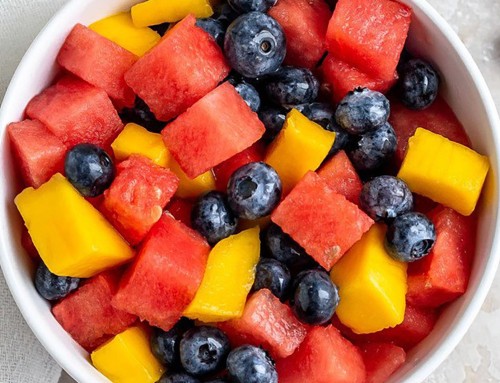Evening meal – What do I really need?
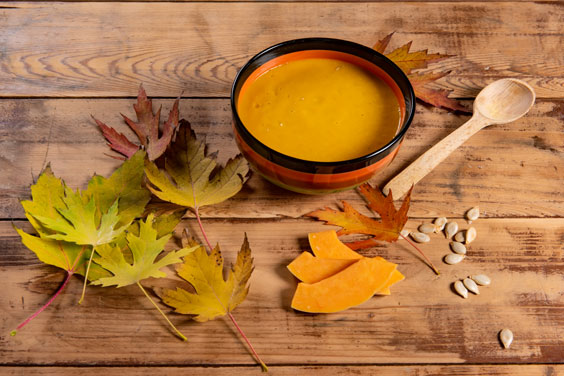
Do you usually have your main meal in the evening? I was brought up having my main meal in the evening and did not question it until I came across the health wisdom of Ayurveda.
Why is it commonplace to eat a large evening meal?
It became the tradition after the industrial revolution to gather together for the main meal of the day in the evening when the day’s work has been done.
The Industrial Revolution is the title used to describe Britain’s economic development from 1760 to 1840. At this time, it did not suit the factory timetables for the populace to stop and gather for their main meal in the middle of the day as had been the custom. Thus, a brief and small meal became the norm at lunch, just enough to tide one over until the workday was done.
Prior to the Industrial Revolution, the evening meal was lighter than lunch and the focus of the evening meal was more on providing a social ‘coming together’ for family, friends and communities at the end of the day prior to sleep. Eating patterns moved more naturally with nature, breaking the fast of an overnight sleep at breakfast, with lunch as a noonday meal, and a smaller evening meal surrounded by one’s family and friends prior to or around about the setting of the sun.
Now it is more common to have breakfast on the go or to miss it altogether due to time pressure; to have a lighter meal of sandwiches or similar at lunch; and a larger meal in the evening when we have time to prepare and cook. Our bodies are not so quick to change or evolve with social habits as the following research indicates.
When does your body like to refuel?
Research from the University of Texas published in the Journal of Nutrition in January 2004 found that meals consumed in the early parts of the day provide more of a sense of fullness than meals consumed later in the day.
Researchers wonder if this is behind the tendency to graze in the evening as food is less satisfying at this time making some people more vulnerable to overeating. They also noted that the same amount of food taken earlier in the day is burnt off more efficiently than when it is taken in the evening; Significantly more calories were burnt digesting the same meal in the morning compared to the afternoon or evening.
What does your body need?
Ayurveda explains that the natural intelligence within the body prefers to start the day with breakfast suited to your body type between 6 AM and 8 AM, with the largest meal of the day taken between 12 noon and 1 PM and an early evening meal taken between 5 PM to 6.30 PM.
If you find it uncomfortable to eat earlier in the day, your habits may be out of step with nature’s rhythms. To step back in tune with nature will need a gentle change of habits, one step at a time until it feels comfortable to eat your main meals at the recommended time with larger quantity at lunch and lighter quantity in the evening meal.
Healthy Eating – Evening Meal Tips
Optimise calorie burn
To optimise calorie burn have your evening meal early – between 5.00 pm to 7.00 pm. Follow the guidelines: “The Later I eat, the lighter I eat.” Aim to have your evening meal as close to sunset as you can.
Eat a larger portion at lunch
Where you can aim to eat a larger portion at lunch and a smaller portion in the evening meal. Then you will have the flexibility to cope with a special night out where you choose to eat heavier or later.
Helpful Herbals
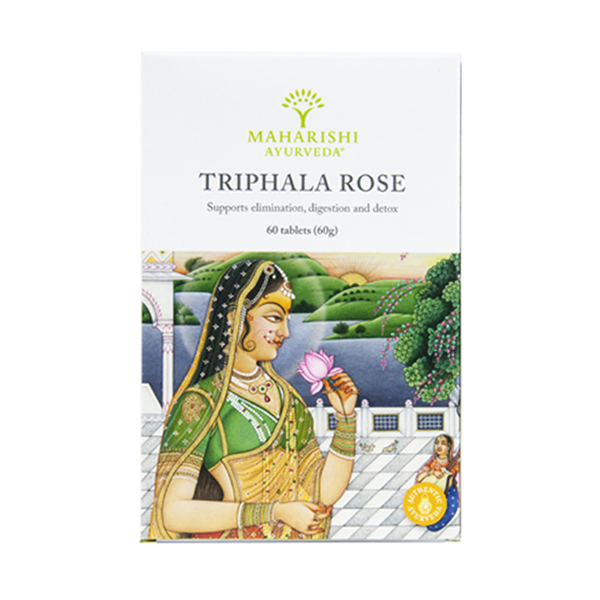
Triphala with Rose (MA505)
Take 2 tablets of Triphala with Rose prior the evening meal to support optimal digestion and to reduce impurities from incomplete digestion. Triphala consists of three fruits, which work synergistically to detoxify your entire digestive tract. Cabbage Rose is added to support and enhance the other ingredients. Triphala with Rose helps with the absorption of nutrients and in restoring energy.
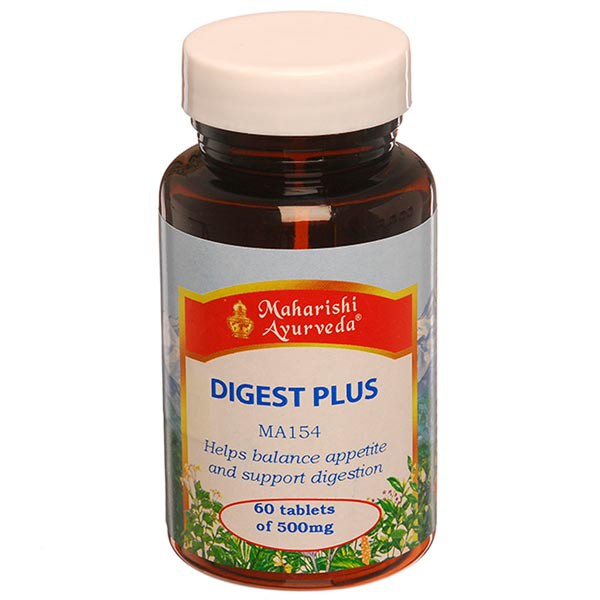
Digest Plus (MA154)
If you have a tendency to feel heavy or sluggish after eating consider taking 2 Digest Plus tablets after eating. Agni, or digestive power, is seen by Ayurveda as central to good health. Poor digestion means lack of full nutrition and the accumulation of ama, undigested food that forms toxic waste in the body. Sluggish bowels, feeling dull, tired, or bloated after eating, or feeling that your digestion is low, are signs of a weak Agni. Digest Plus regulates Agni to balance your appetite and support good digestion. It helps balance stomach acid and reduces gas. This preparation is especially suitable after a heavy meal.
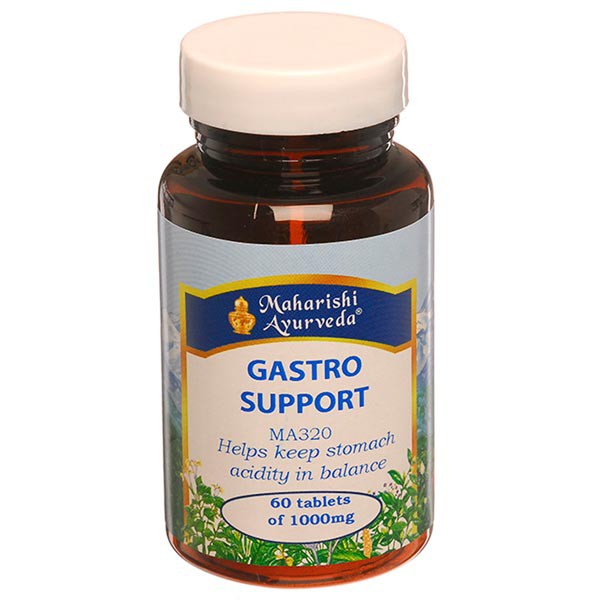
Gastro Support (MA320)
The 17 herbs in Gastro Support work synergistically to help maintain balance in the stomach and digestive tract. The cleansing and balancing actions of this preparation normalise stomach acids, help maintain a feeling of digestive comfort and to ensure you get the maximum nutrition from your food.
Aim to have dinner at the same time each day
Aim to have dinner at the same time each day. Find a pattern that agrees with both your busy lifestyle and establishes a routine. Routine makes healthy eating habits easier to maintain. Where you can aim to form a habit of eating your evening meal by 6.30 PM.
Be sure to include plenty of vegetables
When planning dinner be sure to include plenty of vegetables and have at least one serving of warm cooked leafy green vegetables each night. Aim to have a good range of vegetables in your evening meal and favour what is in season. Experiment with different tastes and flavours by using fresh herbs such as parsley, basil, coriander etc and spices such as ginger, turmeric, cumin, fennel, black pepper and curry powder. Favour warm, tasty and freshly cooked meals over raw food or salad meals in the evening meal during autumn, winter and spring.
Add Vata Aromatic Seasoning
During Autumn and Winter add Vata Aromatic Seasoning to your cooking or sprinkle it over your meal at night. Take sips of warm Vata tea while you eat.
Eat your meal with full attention
Sit and eat the evening meal by yourself or in the company of family and friends. Eat your meal with full attention – without dividing the attention by watching TV, talking on the phone or working on the computer. Put your whole attention on the meal and enjoy the process to gain optimal nutrition. Enjoy your meal!
Sit comfortably after eating
Take the time to sit comfortably after eating for 5-10 minutes and where you can take a gentle walk for 10 minutes to aid digestion.
Drink, a cup of Raja’s Cup
After eating, drink a cup of Raja’s Cup. It aids digestion especially of fatty foods. It is a natural coffee substitute which is tasty and has many health benefits too!
Your body needs time to digest your evening meal before retiring for the night. Aim to eat a light dinner three to four hours before you go to bed. This will give your body a chance to use the energy stored in the food. Eating later in the evening or right before bed means any unused energy will be stored as fat. This can result in weight gain.
Favour foods that are high in tryptophan
To aid a great night’s sleep favour foods that are high in tryptophan, which promotes sleep such as dates, milk, nut butter (almonds, cashews, and walnuts) figs, bananas and wholegrain crackers. Avoid combining bananas and milk as they do not combine well together. Ayurveda explains this combination can be a cause of skin conditions.
Wishing you a tasty and health-promoting evening meal that helps to keep you healthy and happy

Linda Sinden, Maharishi AyurVeda Consultant
Linda Sinden has been a practising Maharishi Ayurveda Consultant since 1990 and is a regular contributor to our health articles. She has a practice in Auckland, New Zealand and also provides phone or Skype sessions for those who need assistance, but don’t have a consultant in their vicinity.
Email: lindasinden@orbislife.co.nz
Mobile: +64 212237525
Skype: Linda.Sinden
DISCLAIMER: The information in this document is presented for the sole purpose of imparting education on Maharishi AyurVeda and neither the information nor the products are intended to diagnose, treat, mitigate, cure or prevent any disease. If you have a medical condition or are pregnant or lactating, please consult a health professional and it is recommended that you speak with your physician before making significant changes to your diet or routine.


